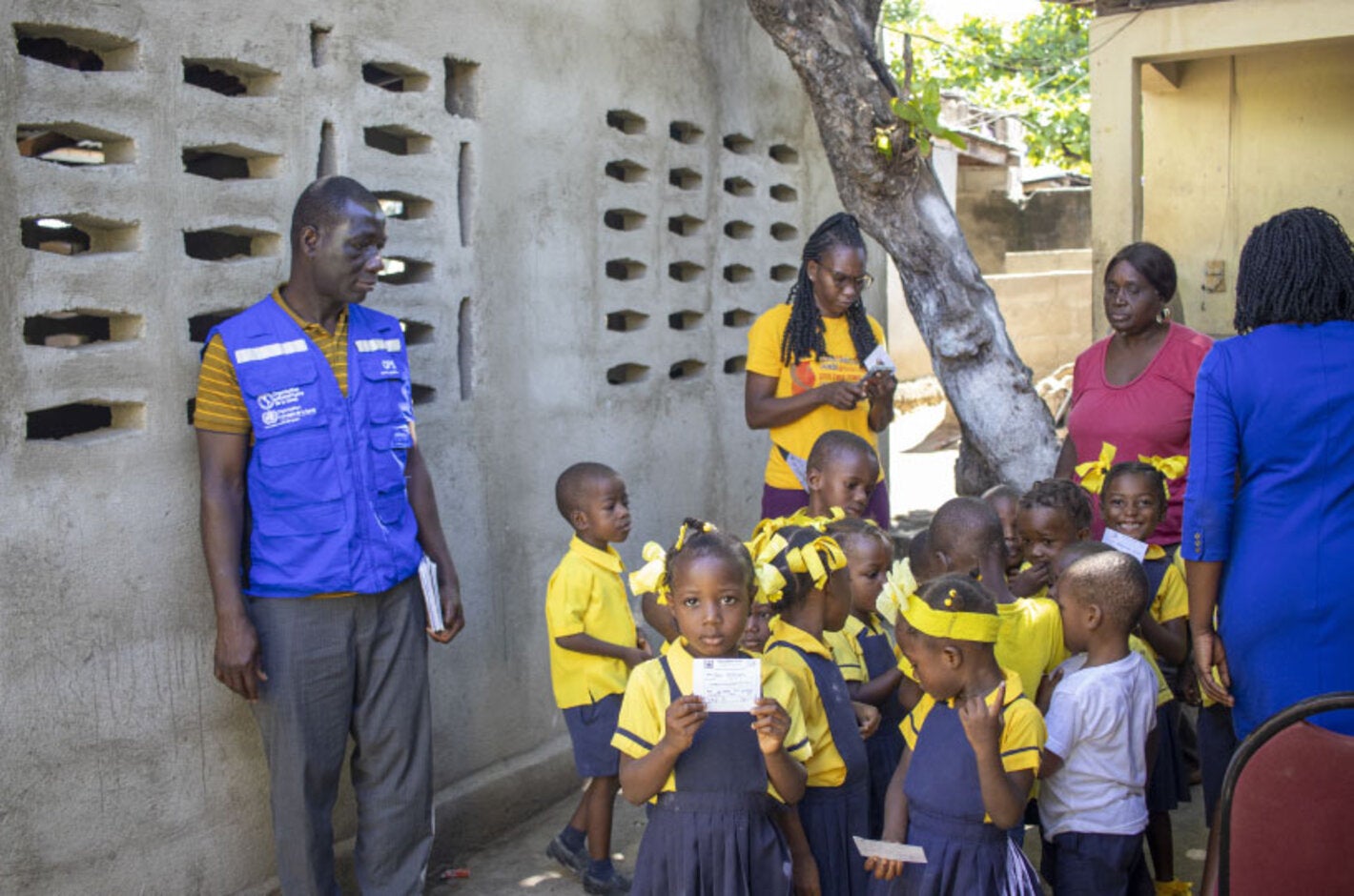
Port-au-Prince, Haiti, July 19, 2024 (PAHO) – Haiti’s Ministry of Public Health and Population recently vaccinated more than 230,000 children in a campaign launched to contribute to reducing infant mortality related to diphtheria. With funding from the Government of Canada, the Pan American Health Organization (PAHO/WHO) provided key technical and logistical assistance to successfully carry out the campaign, despite the challenging humanitarian situation in the country.
According to preliminary data from the campaign, 234,107 children received the vaccine against diphtheria, tetanus and pertussis (DTP). The campaign targeted unvaccinated and under-vaccinated 12-59 month-old children in eight of Haiti’s 10 departments, including those in communes particularly impacted by diphtheria. The campaign reached 95% of the children targeted. A broader national “catch-up” campaign is aimed at vaccinating more than 5,000 zero-dose children.
The DTP campaign was supported by Canada’s CANGive initiative to expand access to vaccination for vulnerable populations. Canada is injecting over 6 million Canadian dollars (around US$4.4 million) into the Haitian health system to bolster vaccination outreach and operations throughout the country.
“Increased vaccination is instrumental to stopping the spread of diphtheria, an often-fatal disease that was once eliminated in Haiti,” said Dr. Oscar Barreneche, PAHO/WHO Representative to the country. He added that the average mortality rate for diphtheria since it reemerged in 2014 has been high at 20.4 %. “We need to return Haiti to its previously strong immunization status against all vaccine-preventable diseases.”
From 2014 to 2023, there were 1,750 suspected cases of diphtheria, 470 confirmed cases, and 96 deaths in Haiti. The disease’s reemergence is due to declines in the frequency and quality of routine vaccination programs against all vaccine-preventable diseases.
The rate of vaccination of Haitian children younger than 1 year who developed diphtheria illustrates the deterioration: Some 43.4% of them were unvaccinated at the time of diagnosis, and the vaccination status for 51.1% was unknown.
Globally, the number of children who received three doses of the vaccine against DTP stalled at 84% in 2023, a rate that is still below pre-COVID-19 pandemic levels, according to data published in July 2024 by WHO. WHO reported that the latest WHO and UNICEF estimates of national immunization coverage (WUENIC) underscore the need for ongoing catch-up, recovery and system-strengthening efforts. Throughout the world, vaccination generally declined during the COVID-19 pandemic when many essential healthcare services were disrupted.
Vaccination coverage in the Americas is slightly better, with 91% of children younger than 1 year receiving the first dose of DTP vaccine and 86% receiving the third dose in 2023. According to WUENIC data, the Americas Region was the only Region in the world to achieve the pre-pandemic (2019) coverage rate for the DTP vaccine. Still, these results leave 1 in 10 children younger than 1 year without protection.
PAHO Director Dr. Jarbas Barbosa said, "The Americas Region shows positive results, undoubtedly due to the efforts of health professionals in countries, to the investments made, to political commitment, and to the responsible population that recognizes the importance of vaccination.” However, he emphasized the need for continuous efforts to “once again achieve the vaccination coverage that historically put us at the top of the global ranking.”
Dr. Barbosa made the comments in a press release and video on vaccination coverage in the Americas, which coincided with the WHO release of global data.
The recent DTP campaign in Haiti was launched through health facilities and mobile vaccination sites throughout the eight departments. Kindergartens and elementary schools were targeted in order to reach children 12-59 months old. PAHO provided technical and financial support to the Public Relations Unit of the Ministry of Public Health and Population (MSPP by its French acronym) for a communications campaign aimed at encouraging parents and guardians to have their children vaccinated.
The campaign featured various promotional initiatives, including activities led by vaccination specialists and influential community leaders, public announcements by town criers, community gatherings at health facilities, and radio messages about the importance of vaccination that were broadcast by local stations.
“Persuasive, effective communications about the overwhelming benefits of vaccination is instrumental,” said Dr. Barreneche. “Even the most ambitious vaccination campaign cannot succeed without the support of families and communities.”
PAHO will continue to work alongside the MSPP and health partners in Haiti to improve access to essential vaccination services and bolster vaccination coverage, targeting primarily most at-risk individuals such as children. The financial support of the Government of Canada, under the CANGive initiative, has been instrumental in supporting regional efforts to recover and strengthen immunization programs in Haiti and throughout the Americas.



